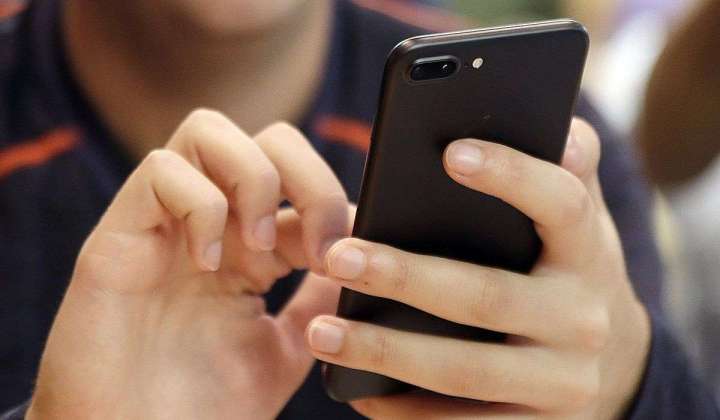Online daters say being ‘zombied’ is now scarier than ‘ghosting’

Getting “ghosted” on dating websites by wooers who abruptly vanish without a word may hurt, but matchmakers say the new trend of getting “zombied” is just plain scary.
Viral social media posts have increasingly declared the dating scene in large U.S. cities a “zombie apocalypse” since the COVID-19 pandemic started. Last year, growing reports of “ghosts” returning as “zombies” to haunt the lonely hearts they brushed off long ago prompted the website Datingadvice.com to add “zombieing” to its list of modern dating terms.
“A person who is a zombie is like a boomerang — coming back into your world after you’ve ended things,” the definition says in part. “They ghosted you, it’s over, you’ve taken the time to heal and move on. Then, when you’re over them, perhaps months or years later, they pop back up to text and say, ‘Hey’ or ‘Happy Birthday’ or even ‘Happy Valentine’s Day.’”
Amber Brooks, the Florida-based editor of Datingadvice.com and Datingnews.com, says she was zombied “a time or two in the dating scene” before marrying a man in December whom she met on OKCupid and Hinge.
“The zombies I’ve known were looking to perhaps apologize briefly and start things up again, but they were knocking on a door they’d already closed, and I’d bolted it behind them,” Ms. Brooks, 32, told The Washington Times.
“Zombies” are typically the least mature online daters and “that’s not a very attractive quality” to people looking for a long-term relationship or marriage partner, she added in an email.
“I’ve heard friends tell of zombies who came up with lame excuses like ‘sorry for disappearing on you, I’m a libra,’” Ms. Brooks said. “And when she didn’t respond to that, he further explained: ‘libras are moody.’ A real charmer.”
Like ghosting, zombieing is a rude behavior that arises from the online anonymity of not having to look another person in the eye while messaging on apps like Match.com or eHarmony, dating experts say.
Even though most zombies aren’t scammers, daters say investing time in “the undead” can be more frustrating than having their money stolen. That’s because time — unlike money — is a commodity they can never recover as they feel the clock ticking to find a partner.
“While ghosts and zombies are both scary in the online dating world, the zombies have an extra ick associated with them,” said Justin Haar, the New York City-based founder of the dating and social app Eden. “When someone on a dating app returns from the dead, it’s highly likely that person is picking up scraps that they never wanted in the first place.”
It’s wise to ignore, delete and block zombies because they rarely return with the realization that they made an honest mistake in ghosting someone earlier, he added in an email.
According to relationship gurus, the experience of getting zombied goes back to 1997, when AOL instant messenger first allowed lonelyhearts to chat online with possible romantic interests. That technology inspired the 1998 hit romantic comedy “You’ve Got Mail,” starring Tom Hanks and Meg Ryan.
They say the arrival of text messaging in the early 2000s, the spread of smartphones a decade ago and the surge in people dating online during the 2020 COVID lockdowns have created a “Night of the Living Dead” landscape since then.
Today the experience usually occurs when a former dating contact suddenly reaches out again through a dating app or through a social media friend request or comment on a post.
The danger of responding is the likelihood that zombies are playing “it’s over, come on over” relationship games, said Janice Gaunt, a Dallas, Texas-based licensed professional counselor.
And the statistical likelihood of getting hurt twice as bad as the earlier ghosting is higher than the slim chance that re-engaging might lead to a healthy relationship, she added in an email.
“Getting ghosted or zombied typically results in sadness, anger and oftentimes actual depression,” said Ms. Gaunt, author of the recent book “Prince Charming is Dead … or in Rehab.”
Others say zombieing reflects a deeper problem with online relationships: an absence of the more intuitive social etiquette that defines face-to-face courtship.
“Whatever you call it, whatever label you put on it, it’s emotional immaturity,” said Gregory Quinlan of the Center for Garden State Families, a conservative Christian think tank based in New Jersey. “This is only compounded by our tech-saturated culture.”






